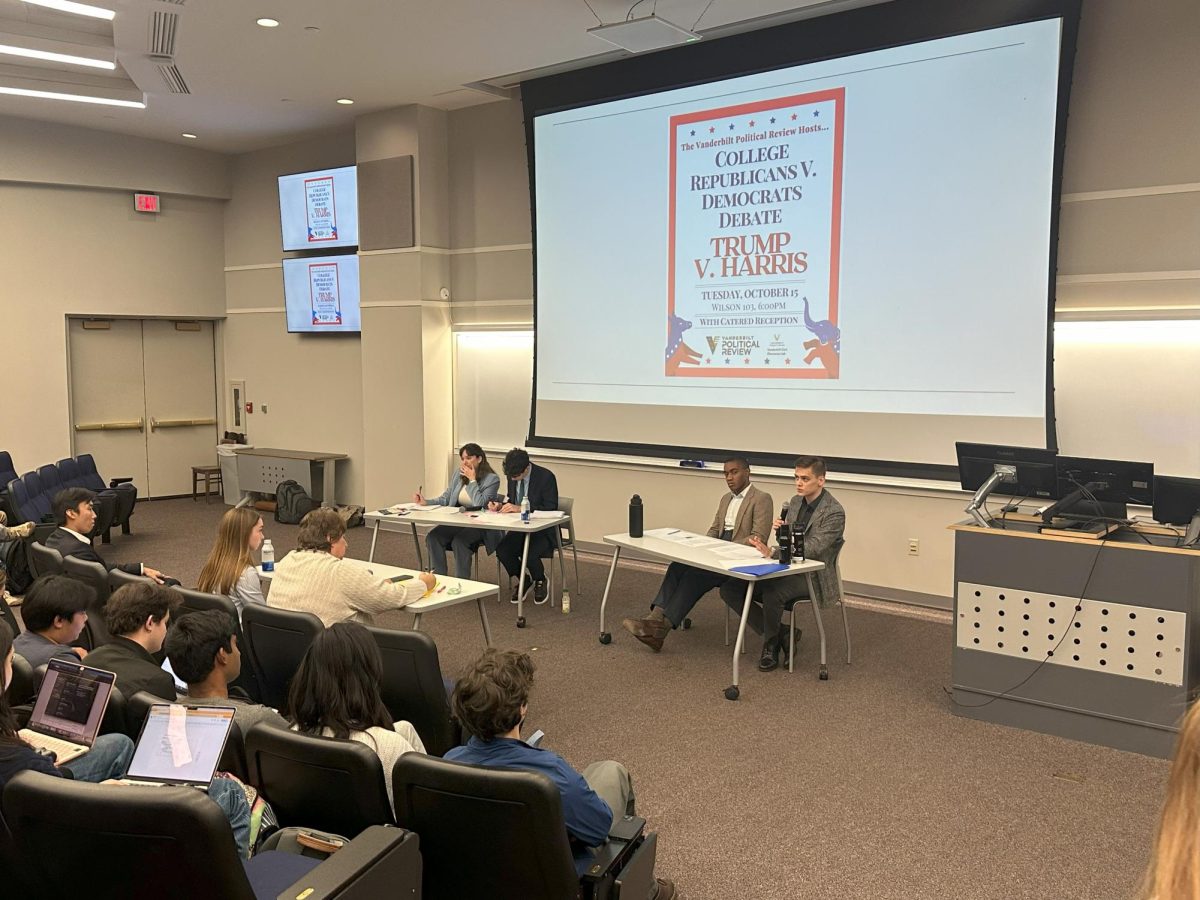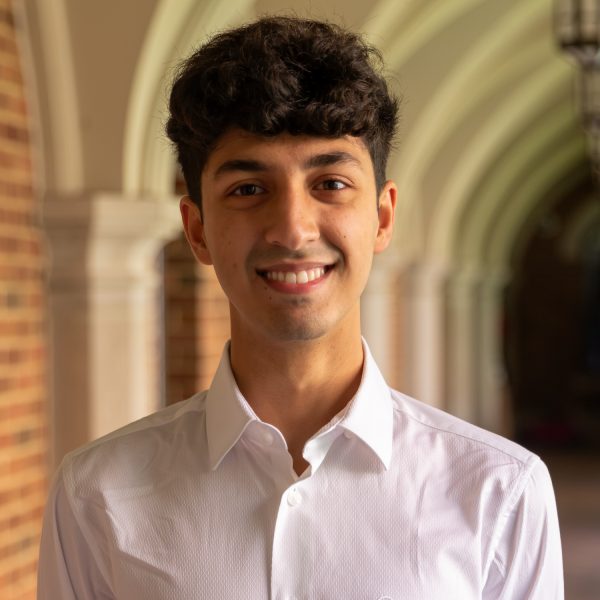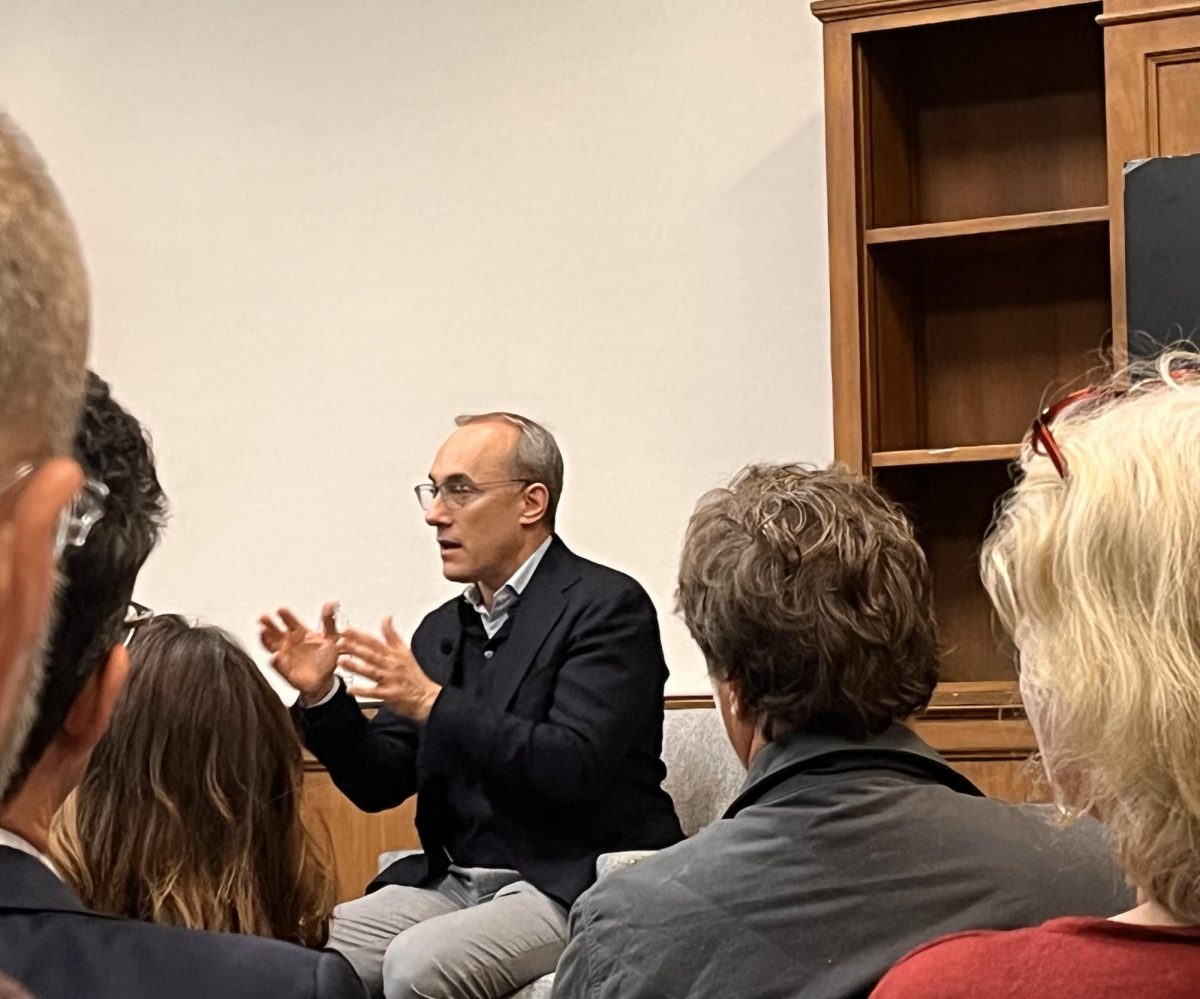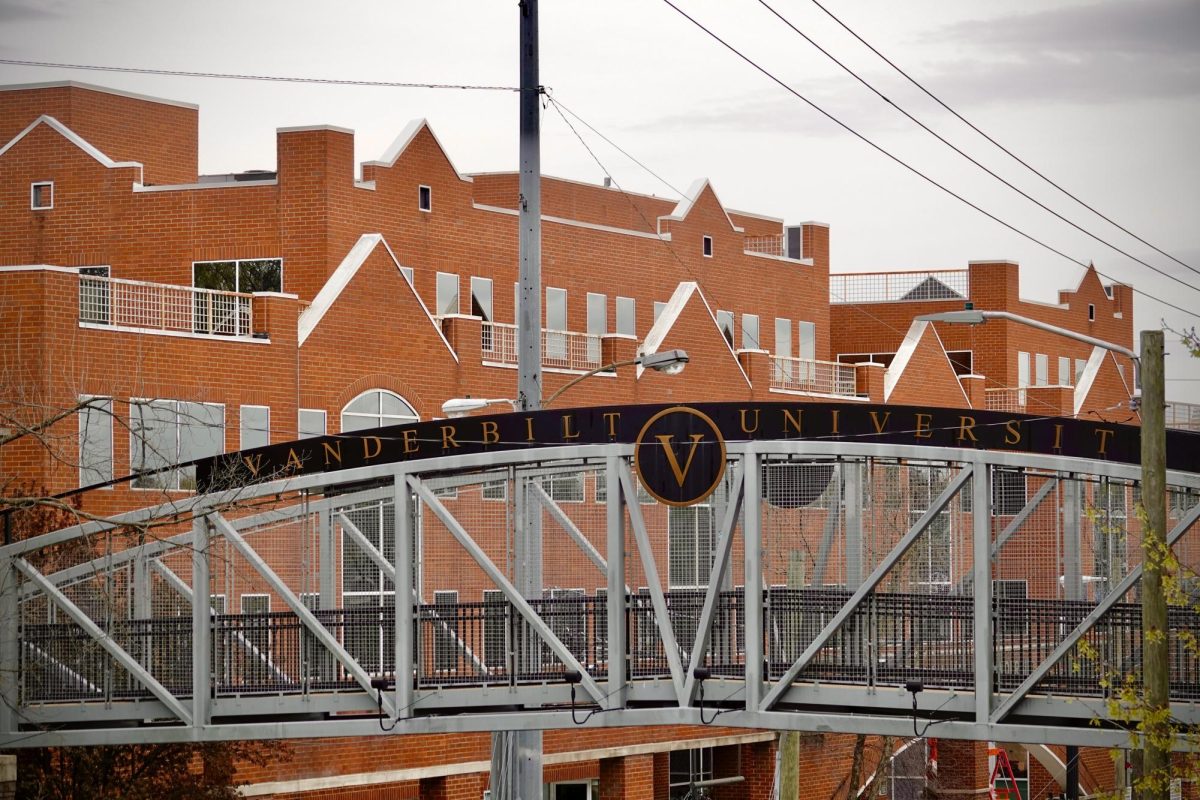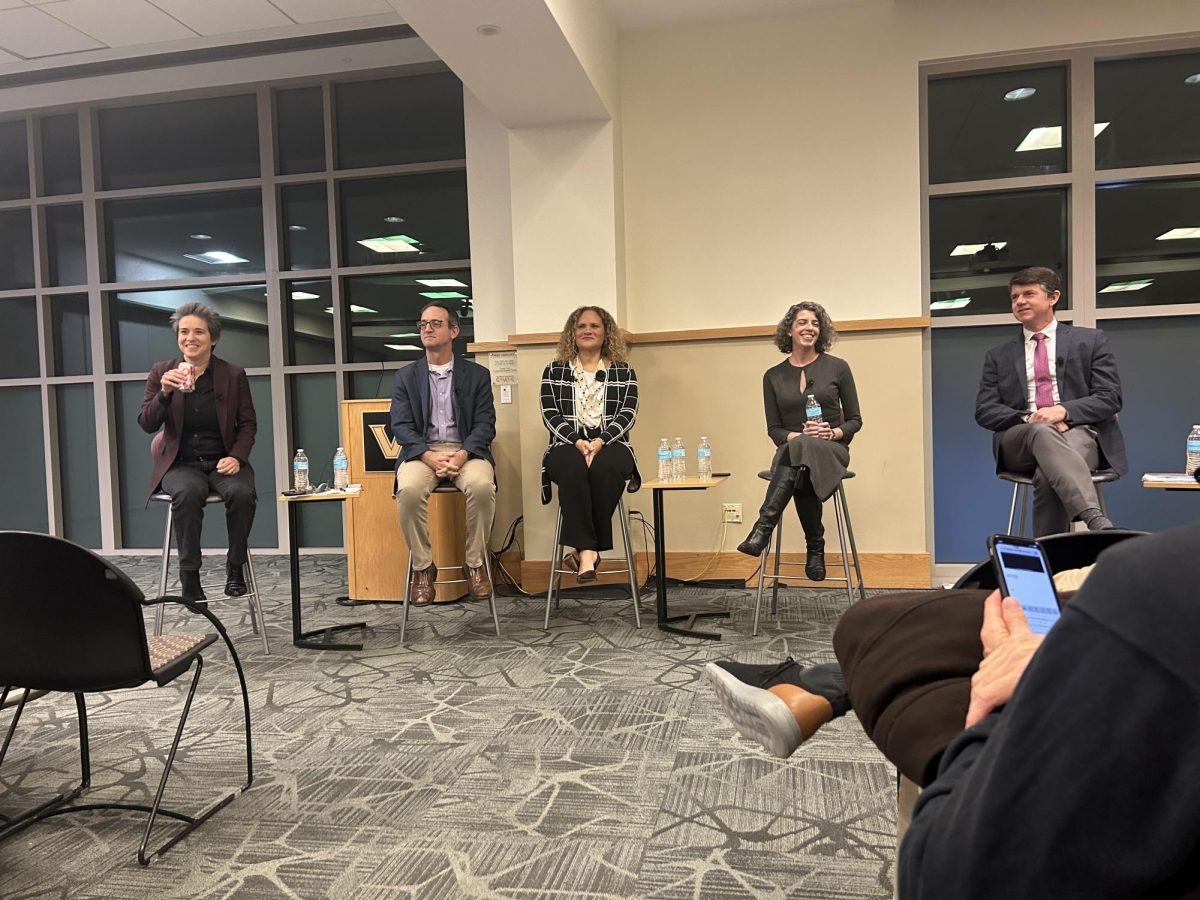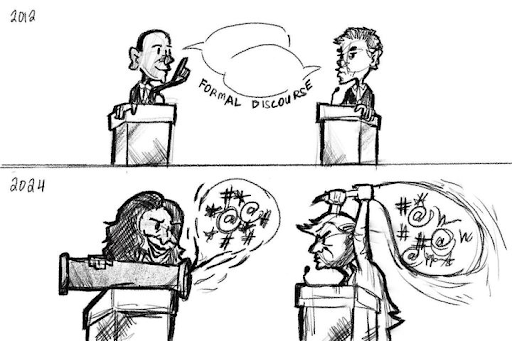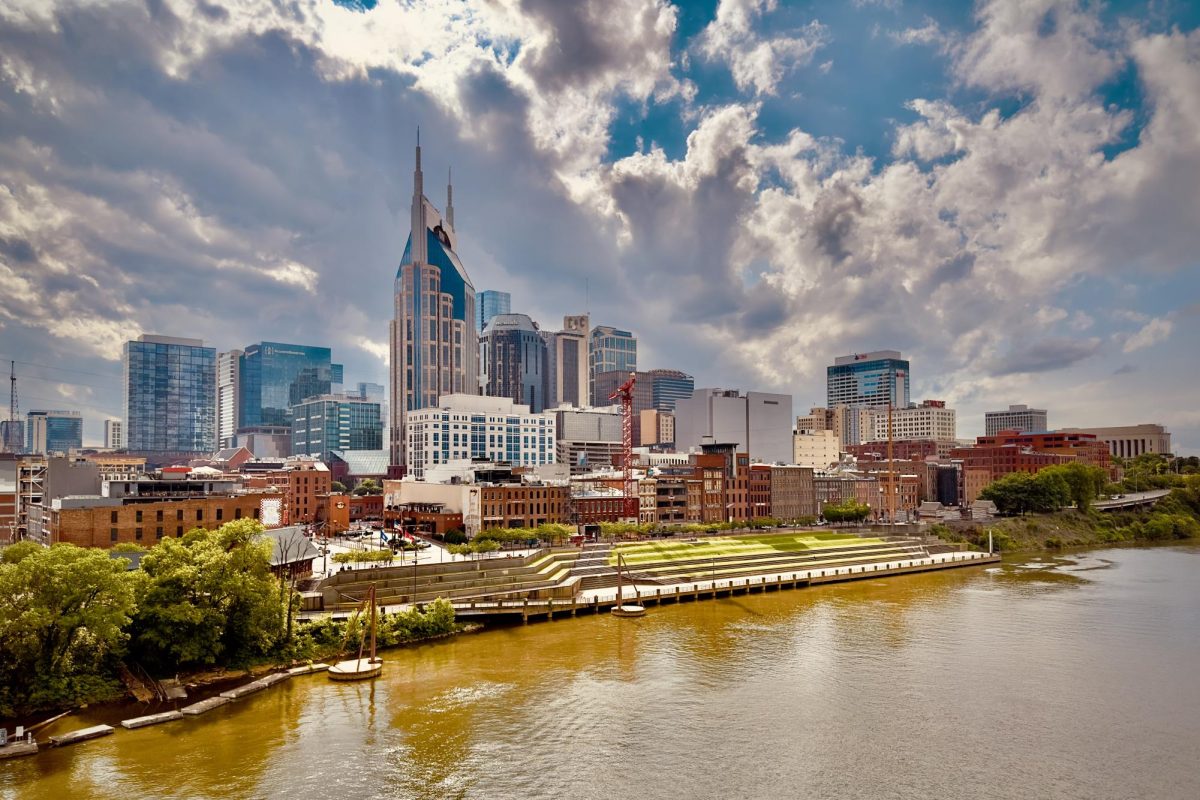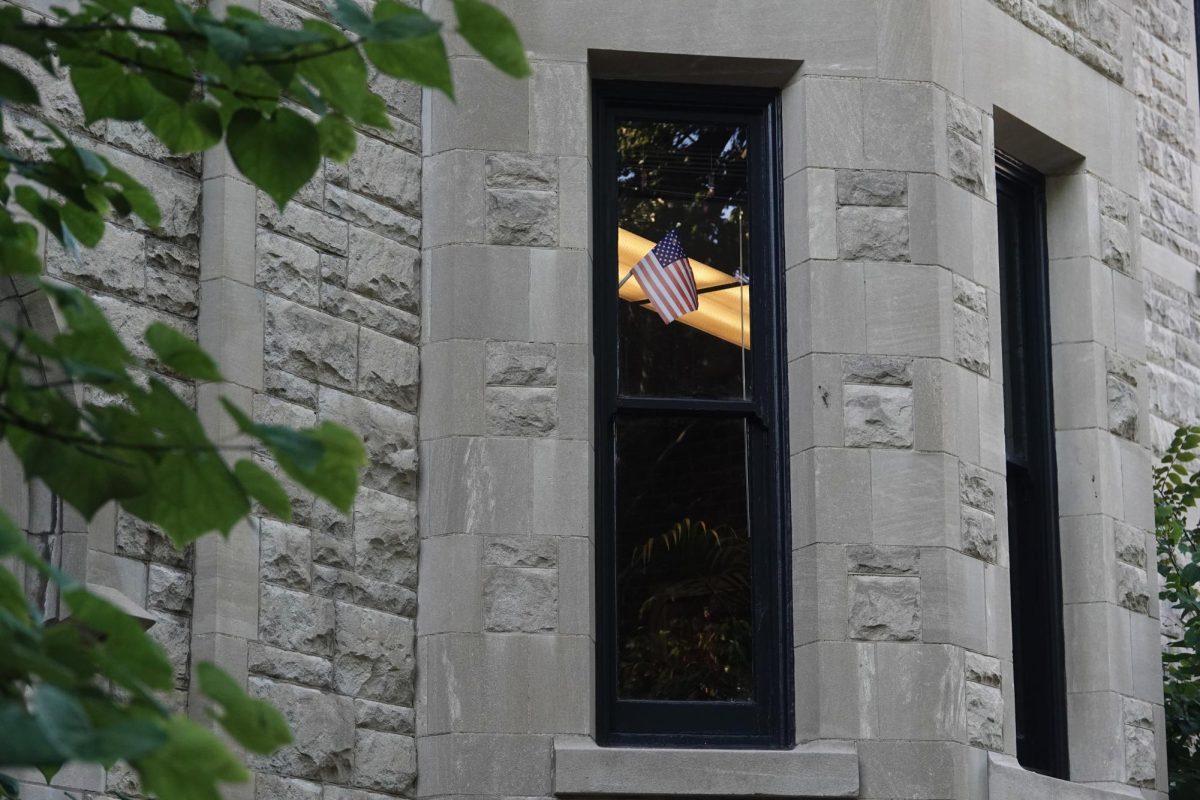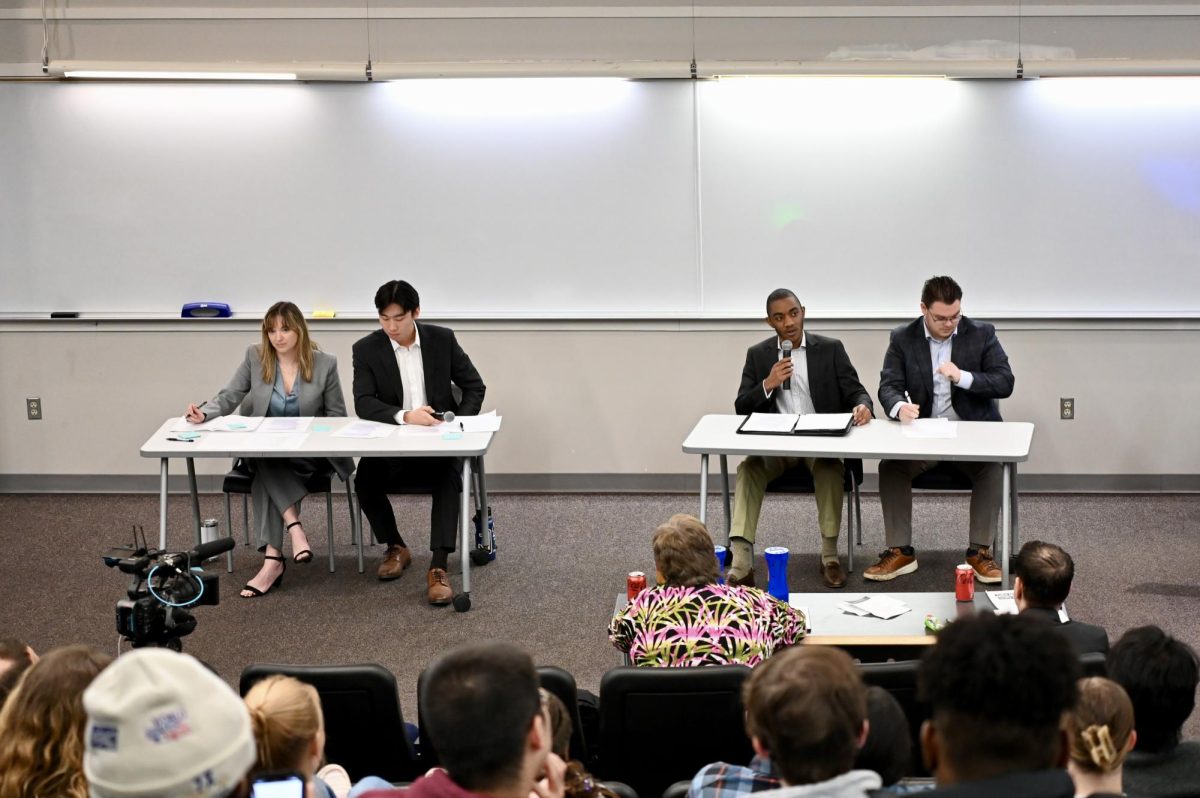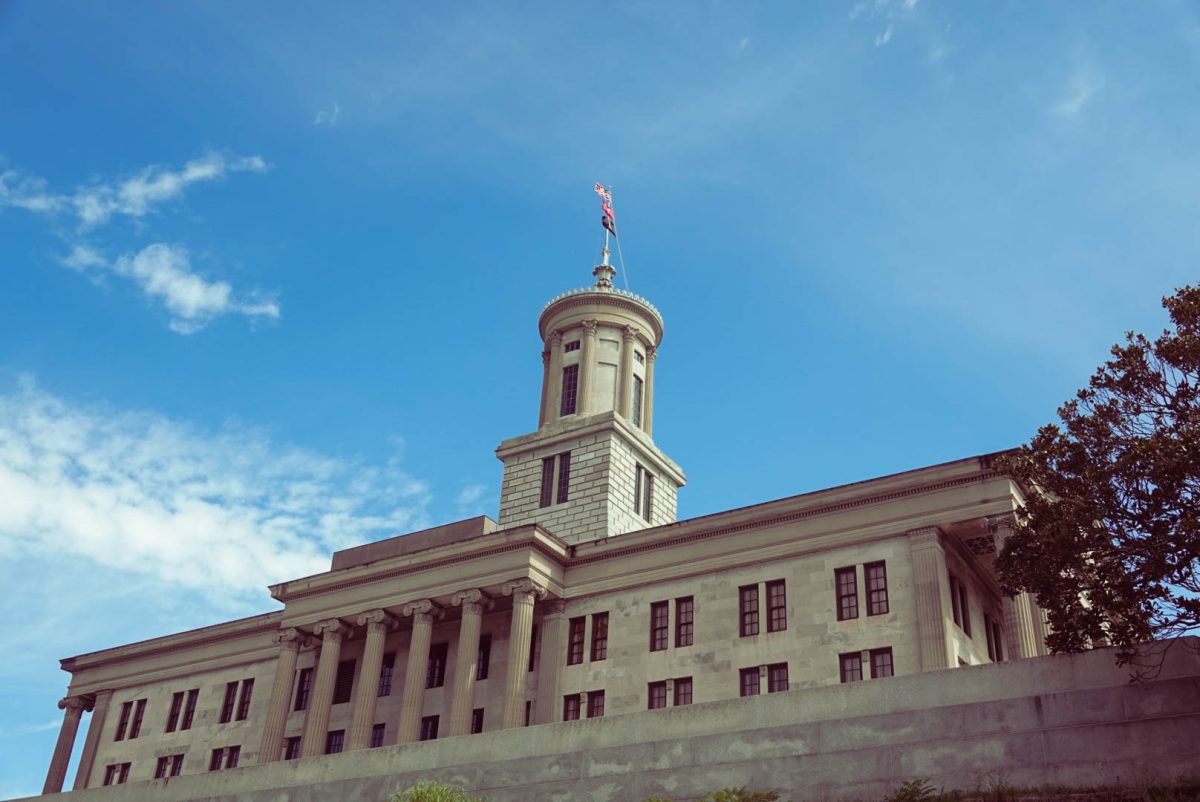Vanderbilt Political Review hosted a debate on Oct. 15 between Vanderbilt College Democrats and Vanderbilt College Republicans. Both groups advocated for their respective 2024 presidential candidate, Vice President Kamala Harris and former President Donald Trump. The event was held in conjunction with the Civil Discourse Lab, part of the Dialogue Vanderbilt program.
In February, VPR hosted a similar debate between VCD and VCR on gun policy, almost one year after the Covenant school shooting. Senior Andrew Kyung, president of both VPR and VCD, said they adapted the framework of the debate from last year to allow for more free debate between the two groups through longer cross examination periods.
Opening statements
Kyung opened the debate by describing VPR as the only nonpartisan political journal on campus, giving it a unique position to oversee political debates. The debate was moderated by sophomore Alicia Isasi, VPR’s managing editor, and M. L. Sandoz, a faculty member associated with Civil Discourse Lab.
“The election is twenty days away,” Kyung said. “Our goal for the next hour or so is to inform you on making the best possible decision you can.”
VCR gave the first opening statement, as determined by a coin toss. First-year Frederik Schutz and junior Noah Jenkins, VCR president, used their opening remarks to express dissatisfaction with inflation, the withdrawal of troops from Afghanistan, global unrest and immigration.
“As Americans prepare themselves to go to the polls in three short weeks, we implore them to ask themselves the following question: Are you better off now than you were four years ago?” Schutz said. “The answer to this question, comparing the pre-[COVID-19] Trump era to today, is that the U.S. is markedly worse off.”
Junior Melanie Gerko and sophomore Drew Spiegel represented VCD and contrasted Harris with Trump. They said that while Harris is focused on progress, preserving democracy and supporting working families, Trump is divisive and self-serving as well as a threat to democracy, citing attacks on his character from his own former allies.
“Kamala Harris is not just a candidate. She is an emblem of what the American presidency can and should be,” Gerko said. “She seeks to steer the nation away from politics of hate and fear and toward a future where unity and justice have the ability to prevail.”
Candidates’ qualifications
The debate then transitioned to three candidate-related questions. Each side was given two minutes to provide an initial response before thirteen minutes of free debate. The first question asked why the parties’ respective candidates were more qualified to be the President of the United States.
VCD responded that Harris was qualified to be President because of her extensive legal and political career in California. They referenced her experience as the District Attorney of San Francisco fighting for criminal justice reform before becoming California’s Attorney General, as well as her record as Vice President.
Spiegel applauded Harris’ work in the Biden administration, such as her role in passing policies like the American Rescue Plan and Inflation Reduction Act of 2022.
“On the other hand, you have a candidate who is anti-democracy, calling elections fraudulent, despite the fact that experts like Chris Krebs have called the elections the most secure in American history,” Gerko said.
Schutz, in his statement for VCR, explained that “Trump has done it before.” The VCR representatives said that the former President was qualified because of his record of economic growth, low unemployment, security at the southern border and relative global peace, comparing this to the “chaos and malaise” of Harris’ leadership.
“Trump wants you to remember his record during the four years of his presidency, where as Harris wants you to forget hers,” Schutz said.
The free debate that followed became spirited as both sides argued about the cause of inflation and other economic issues, each blaming the other side’s administration. The conversation also extended into Trump’s role in the Jan. 6 insurrection. At the end of the cross-examination period, the moderators quieted the debaters and announced it was time to move on to the next question.
Candidates’ backgrounds
The second question asked how the candidate’s background and experience shaped their character. From VCR, Jenkins said that the assassination attempt on Trump in Butler, Pennsylvania, highlighted the former President’s instinctual leadership ability, genuine care for supporters and “fighting spirit.”
“He’s been a fighter since day one. He has continued to fight against what we would characterize as bogus charges in the legal system that tried to get him down. It’s a decade of media hatred against him,” Jenkins said.
Gerko, representing VCD, instead focused on Harris’ middle-class upbringing by immigrant parents and contrasted this with Trump’s wealthy family roots. Spiegel further elaborated on how Trump’s background only proves him to be out of touch and belies his true business history, listing a series of failed business ventures under Trump’s name.
“We have the ability to talk about Kamala’s background, to talk about her life, and what her childhood looked like, and how she is truly an American original,” Gerko said.
The following period of open debate largely revolved around Trump’s history of sexual assault allegations. Spiegel pressed the VCR representatives on whether sexual abuse was a “red line” for them, and Jenkins clarified that VCR would not defend sexual abuse. The conversation then turned toward staff turnover within Harris’ Vice Presidential office and the frequent firings and cabinet turnover during the Trump administration.
Candidates on the world stage
The third and final question asked why each candidate would be a better representative of the United States on the world stage. VCD brought the debate back to Trump and the Jan. 6 insurrection, which they claimed poorly represented American democracy. They said Trump alienated allies and appealed to adversaries like Putin, and finished by directly asking VCR if Trump won the 2020 election.
Schutz began the VCR statement by affirming that Trump lost the 2020 election and then transitioned to the stance that Trump took on national security and establishing good relations with Russia and North Korea. He also discussed the relative peace in the Middle East under the Abraham Accords. They contrasted this record with escalating violence in Ukraine and the Middle East under the Biden administration.
In the final session of cross-examination, which was shortened to eight minutes due to time constraints, the two sides discussed media appearances and argued over which administration was responsible for the unorganized military withdrawal from Afghanistan.
Both VCD and VCR shared closing statements encouraging the audience to vote for their candidate. Following the debate, both sides expressed pride in their performance and gratitude for the organizations involved and the university for putting the event together, noting the importance of free dialogue about the upcoming election.
“I think the debate went well. When I’m judging an event like this, I’m not looking at my personal performance. I’m looking at its ability to continue fostering open dialogue at the university, and I think it did just that,” Gerko said.
Jenkins reaffirmed his case for Trump and said a greater focus on policy would be more informative about Trump’s platform.
“I think it went as expected. They hit us on the things I thought they would,” Jenkins said. “This wasn’t a policy debate. This was a character debate.”
Sandoz said the debate was productive, civil and informative, which is crucial to the idea of free exchange.
“It is really important that two sides as drastically different as the Harris and Trump camps can come together and actually have a respectful debate that is full of spirit and energy but still remains very respectful and informative,” Sandoz said.
Student reactions
Sophomore Caroline Hammack said she found the debate educational.
“I felt that this debate was very informative and helped me understand more of the candidates’ policies and background,” Hammack said.
Sophomore Parker Rothbart expressed similar enthusiasm about the debate but provided critique regarding the organization of the debate.
“I thought the debate was fascinating as I learned lots of information about the policies and histories of both sides,” Rothbart said. “In the future, I would love to see the debate be more structured with more questions and less than 13 minutes per question because I felt that the debaters ended up quite off-topic.”
Kyung told the Hustler that VPR is planning on holding another debate on Nov. 4, the night before the election. This debate will be focused on pressing policy issues chosen by both VCD and VCR.
“I am beyond proud of all the people that made this event a success, and that involves everyone from administrative supporters to the moderators to the debaters,” Kyung said. “I’m looking forward to making these debates a lasting tradition even after the election.”
Michael Kozma contributed reporting to this piece.

